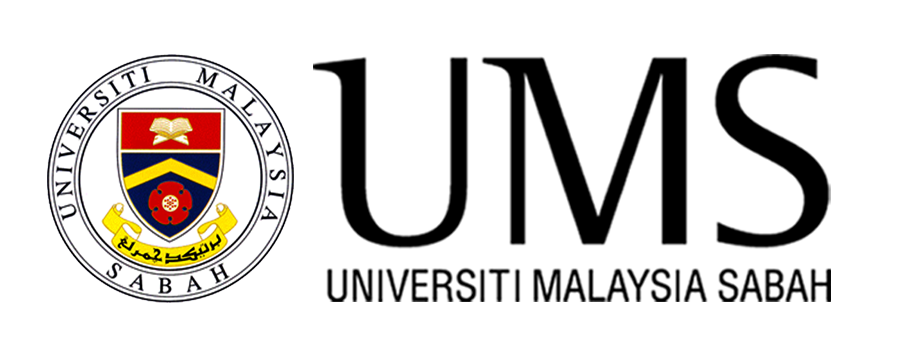Riegelman TIPH Global projects promote awareness of public health issues, education, and career opportunities worldwide, with a specific emphasis on local communities. The third cohort of the Riegelman TIPH Global Program has awarded grants to 11 academic public health institutions from 9 countries, representing 6 regional academic public health associations. This cohort includes both novel projects and, for the first time, a select number of prior grantees who have been approved to expand and evolve their previous TIPH Global campaigns. The projects seek to address numerous modern and critical public health issues including HPV, antibiotic resistance, climate change, decolonizing public health, and improving international collaboration. Using creative approaches, community engagement, and constructive partnerships, the grantees intend to educate, train, and empower their communities. We look forward to following their progress over the course of the grant and supporting these vital initiatives.



6-Month Progress Report
Babeș-Bolyai University
Romania
Creative engagement for increased HPV awareness in Romania
Lead: Marius Ionuț Ungureanu, MD, PhD, MHA – Department Chair
Student ambassador: Ștefan-Augustin Lazăr
This project aims to enhance HPV vaccine awareness among young adults (18–35) in Romania, centered in Cluj County. Led by Babeș-Bolyai University’s Public Health Department. It integrates creative outreach—coffee shop campaigns, digital storytelling, and film festival activations—with global collaborations via ASPHER, EHMA, and EUPHA. Anchored in major public health anniversaries, the initiative trains students as advocates and content creators, combining local engagement with international visibility. By targeting informal spaces and fostering peer-led conversations, it aims to engage over 500 participants and create a scalable, arts-based public health advocacy model for communities across Europe.


Deakin University School of Health and Social Development
Australia
Public Health Unplugged
Lead: Carah Alyssa Figueroa, PhD, MPH – Lecturer
Student ambassador: Sara Vargovic
Misinformation about public health, fueled by social media and political debates, threatens community well-being. The project, ‘Public Health Unplugged,’ aims to counter this by simplifying expert knowledge into accessible content by creating a student-led journal and podcast from Deakin University’s School of Health and Social Development. Students will get to showcase outstanding coursework and their diverse interests, experiences and insights in public health. By bridging the gap between experts and the public, students will present the latest research on critical health topics – building their communication skills while enhancing health literacy and strengthening public health messaging.

Escuela Andaluza de Salud Pública (EASP)
Spain
Advancing Action on Antibiotic Resistance: “Empowering Healthcare Professionals and Patients through Digital Innovation”
Lead: Ariane Bauernfeind, MPH – Professor
Student ambassador: María Fernanda Bautista Garín
This second part of “Proyecto Multirresistencias” expands a prior initiative that created an educational website on antimicrobial resistance (AMR). In its new phase, it introduces a mobile application to enhance accessibility and engagement for both healthcare professionals and the public. By incorporating Digital Health Promotion (DHP) strategies, it aims to promote equitable access to AMR information, extend outreach to six Andalusian hospitals, and empower users through training and simplified content. Activities include app development, tailored educational workshops, and social media campaigns. The project emphasizes institutional collaboration and continuous evaluation, using digital analytics and participant feedback to ensure lasting impact in the fight against AMR.


Karaganda Medical University
Kazakhstan
Formation of hygiene skills to maintain and strengthen reproductive health in teenage girls
Lead: Alua Omarova, PhD – Associate Professor
Student ambassador: Ayazhan Bolatbek
The goal of this project is to form a conscious attitude towards intimate hygiene in teenage girls in order to maintain and strengthen their reproductive health. A series of trainings will be conducted to teach girls proper intimate hygiene as well as social talks on promoting a culture of caring for reproductive health and preventing gynecological diseases. Virtual resources, including a TikTok account aimed at countering taboo perspectives about girls and menstruation as well as a chatbot in Telegram to directly answer questions with reliable information, will be run by volunteers. The target audience will involve 11-18 year old girls from Karaganda city, Kazakhstan.

Macquarie University – Faculty of Medicine, Health and Human Sciences, Department of Health Sciences
Australia
Elevating Indigenous Knowledge in Public Health: Macquarie University
Lead: Rimante Ronto, PhD, MPH – Senior Lecturer
Student ambassador: Kristy Burns
This project seeks to address the need for a decolonised approach to improve equity and culturally safe and effective public health practice in Australia. It aims to address systemic underrepresentation of Indigenous perspectives in public health education by embedding Indigenous knowledge and approaches into the Master of Public Health (MPH) course. Through partnership and collaboration with Indigenous scholars and relationship building with local communities, the project will re-design core MPH units founded on Indigenous knowledge systems, pedagogical practices, and strengths-based approaches. Each unit will incorporate co-created learning materials that highlight traditional and contemporary Indigenous knowledge, including artwork and storytelling as central tools.

Makerere University – School of Public Health, Department of Disease Control and Environmental Health
Uganda
From Classrooms to communities: Educating for resilience against floods and landslides in the Elgon Region, Uganda (C2C-Resilence)
Lead: Rawlance Ndejjo, PhD, MSc – Assistant Lecturer
Student ambassador: Divine Katiiti
This project aims to empower teachers as a sustainable intervention to engage students in building resilience towards floods and landslides in the Elgon region, Uganda by conducting a cross-sectional study to assess relevant knowledge, perceptions and practices among primary and secondary school teachers. Additionally, educational materials, including a students’ comic strip and a teacher’s guide, will be developed and distributed to various schools to enhance continued learning. Through providing teachers and students with correct information, the project seeks to empower them to be effective change agents for community transformation.

Taipei Medical University – College of Public Health
Taiwan
From Public Health to Global Impact: The TMU Mission
Lead: Yi-Hua Chen, PhD, MHS – Professor
Student ambassador: Yu-A Yang
Taipei Medical University’s College of Public Health leads innovative education, research, and services to advance global health. Since 2015, it has championed Taiwan’s Certified Public Health Specialists Act, passed in 2020 as Asia’s first. This project focuses on three pillars: health training, health initiatives, and health services. Programs include certification preparation, digital learning, public health summits, and community outreach in underserved areas of Taiwan and Cambodia. Through capacity-building, student practicums, and international volunteer service, it seeks to foster public health expertise, cultural competency, and leadership while addressing critical health challenges and promoting global collaboration for a healthier, more equitable world.

Temple University
USA
Public Health Beyond Borders
Lead: Graciela Jaschek, PhD, MPH – Associate Professor
Student ambassador: Elena Giannoumis
Public Health Beyond Borders is committed to making a positive impact in global communities. This project aims to reduce health disparities and promote healthy behaviors through close partnership and collaborations with communities and universities worldwide. Both undergraduate and graduate students will experience opportunities for responsible global development work through a range of faculty-mentored international trips.
The University of Arizona Mel and Enid Zuckerman College of Public Health (MEZCOPH)
USA
Expanding Public Health Horizons: Engaging Students, Inspiring Global Action
Lead: Iman A. Hakim, MBBCh, PhD, MPH – Dean
Student ambassador: Mon Lacea
“Expanding Public Health Horizons: Engaging Students, Inspiring Global Action” empowers the next generation of public health leaders through global collaboration, skill-building, and awareness. This initiative centers around a podcast series and engaging events that bring visibility to global public health challenges and solutions. With support from the Global Health Alliance and Global Health Institute, students will organize health awareness events and workshops while showcasing diverse global career pathways. Strategic outreach and partnerships with international institutions will expand visibility and impact across Arizona and beyond.

University of Jaffna – Department of Community and Family Medicine, Faculty of Medicine
Sri Lanka
Echoing the public health success stories of Sri Lanka through PODCASTING SERIES to enhance the attitudes and skills of public health personnel
Lead: Pethirupillai Amal Dinesh Coonghe, MD, MSc – Head & Senior Lecturer
Student ambassador: Sivaganesh Suganja
The Department of Community and Family Medicine (DCFM), in collaboration with the Sri Lanka Public Health Education Institution Network (LANKAPHEIN) and the South East Asian Public Health Education Institution Network (SEAPHEIN), is launching a project to enhance its visibility in regional and global public health. The initiative focuses on institutional capacity building, stakeholder engagement, and knowledge exchange across Asia. Key activities include recruiting a full-time graduate fluent in Tamil, Sinhala, and English; conducting stakeholder consultations; identifying Sri Lankan public health champions; and developing, producing, and disseminating a podcast series to highlight public health insights and innovations.

University Malaysia Sabah
Malaysia
Igniting Climate Awareness and Innovation: This Is Public Health Solutions Among Primary Schools Children in Malaysia, Indonesia, Brunei and The Philippines
Lead: Zulkhairul Naim Bin Sidek Ahmad, Md, PhD – Senior Medical Lecturer
Student ambassador: Nabilah Ayob
“Igniting Climate Awareness and Innovation: This is Public Health Solutions” aims to inspire 500 primary school students across Malaysia, Indonesia, Brunei, and the Philippines to become future climate and public health changemakers. Through interactive webinars, quizzes, competitions, storytelling, and innovation challenges, the program educates children on the link between climate change and public health. It empowers them as Junior Eco-Leaders and promotes cross-country collaboration via a regional platform. The initiative culminates in a School-Community Climate Carnival to foster environmental stewardship. Key partners include universities and student clubs from each country, working together to build sustainable, youth-driven public health solutions.

Reviewer Acknowledgement
We extend our sincere gratitude to our reviewers for generously contributing their time and expertise to the application review process for the third cohort of Riegelman TIPH Global Grants. Their thoughtful evaluations were instrumental in selecting a diverse, impactful group of projects that seek to advance public health education, practice, and innovation around the world. Some of our reviewers are prior recipients of the TIPH Global grant themselves† and/or have contributed to this review process across multiple cohorts‡. Thank you all for your ongoing commitment to academic public health and for playing this vital role in supporting the mission of the Global Network for Academic Public Health.
Cohort 3 Reviewers:
- †‡Marcelo Villalón Calderon, MD, MPH, PhD (Universidad de Chile)
- †‡Emerito Jose Faraon, MD, MBA (College of Public Health UP Manila)
- Jorge Andrés Ramírez Flores, MD, MPH (Universidad de Chile)
- †Robyn Gillespie, PhD (University of Wollongong)
- Christine L. Girard, ND, MPH (The University of Arizona Mel & Enid Zuckerman College of Public Health)
- Jennifer Ibrahim, PhD, MA, MPH (Temple University)
- Gintarė Kalinienė, DSc (Lithuanian University of Health Sciences)
- Suzanne Selig, PhD, MPH, MSW (University of Michigan)
- †‡Lolita Šileikienė, DSc (Lithuanian University of Health Sciences)
- Temiwunmi Shobanke, MS (Harvard T.H. Chan School of Public Health)
- Rūta Ustinavičienė, DSc (Lithuanian University of Health Sciences)
- Shujuan Yang, PhD (Sichuan University)



